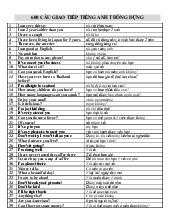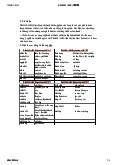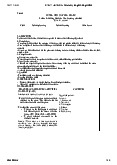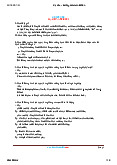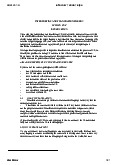

Preview text:
19:06 29/7/24
Israel v Palestine - Bài chuẩn bị Israel v Palestine The Israeli-Palestine Conflict
The Israeli-Palestine conflict is a long-standing and complex dispute between two groups of
people who claim the same land. The conflict has resulted in numerous casualties and destruction
of property, and its roots can be traced back to the late nineteenth century. Historical Background
The conflict began when Jews started immigrating to Palestine, then under Ottoman rule, and
began to purchase land. The Zionist movement, which sought to establish a Jewish homeland in
Palestine, gained momentum in the early twentieth century with the British government's
support. This led to tension between Jews and the Arab population who opposed Jewish
immigration and land purchases.
After World War II, the United Nations proposed a partition plan that would divide Palestine into
two states, one Jewish and one Arab. The plan was accepted by the Jews but rejected by the
Arabs, leading to a war in 1948 that resulted in the establishment of the state of Israel and the
displacement of hundreds of thousands of Palestinians. Current Issues The West Bank Settlements
One of the most significant issues in the Israeli-Palestine conflict is the construction of Israeli
settlements in the West Bank, which the Palestinians view as their future state. Israel has been
building settlements in the West Bank since the 1967 war, which has led to a significant increase
in the Israeli population in the area. This has also led to tension with the Palestinians, who see
the settlements as a violation of their rights and a major obstacle to a two-state solution. The Gaza Strip Blockade
Another significant issue in the Israeli-Palestine conflict is the blockade of the Gaza Strip. Israel
imposed a blockade on the Gaza Strip in 2007, following the election of Hamas, the Palestinian
Islamic extremist group, to power. The blockade has had severe humanitarian consequences,
with the people of Gaza facing shortages of food, medicine, and other basic necessities. The about:blank 1/2 19:06 29/7/24
Israel v Palestine - Bài chuẩn bị
blockade has also increased tensions between Israel and Hamas, leading to several rounds of violence. International Involvement
The Israeli-Palestine conflict has also been complicated by the involvement of neighboring
countries and international powers, who have their own interests in the region. The United States
has been a key supporter of Israel, providing military and economic aid, while Iran has supported
Hamas. The involvement of outside powers has further complicated the situation, making it more
challenging to find a peaceful resolution to the conflict. Rise of Terrorism
The rise of terrorism has also been a significant issue in the Israeli-Palestine conflict. Both sides
have engaged in violent acts, including suicide bombings, rocket attacks, and targeted killings.
The conflict has also been complicated by the emergence of extremist groups, such as Hamas
and Islamic Jihad, who are committed to the destruction of Israel. The use of violence has only
served to escalate the situation, making it more challenging to find a peaceful resolution. about:blank 2/2
